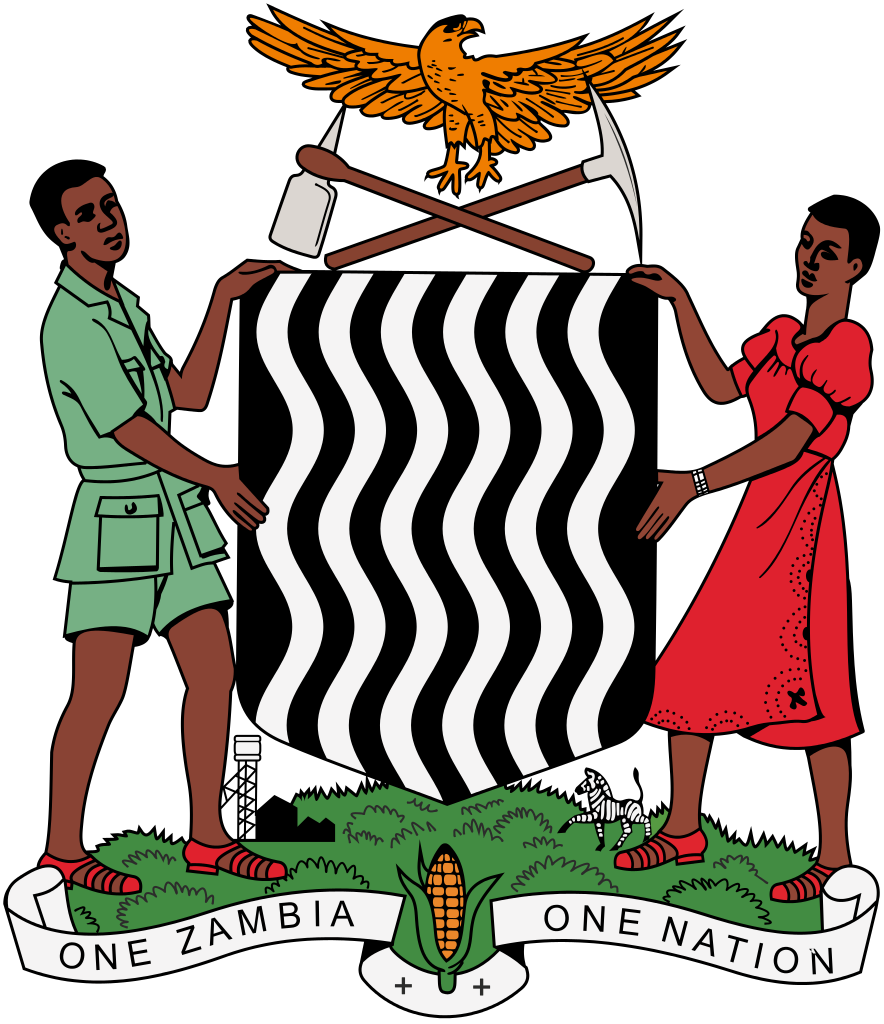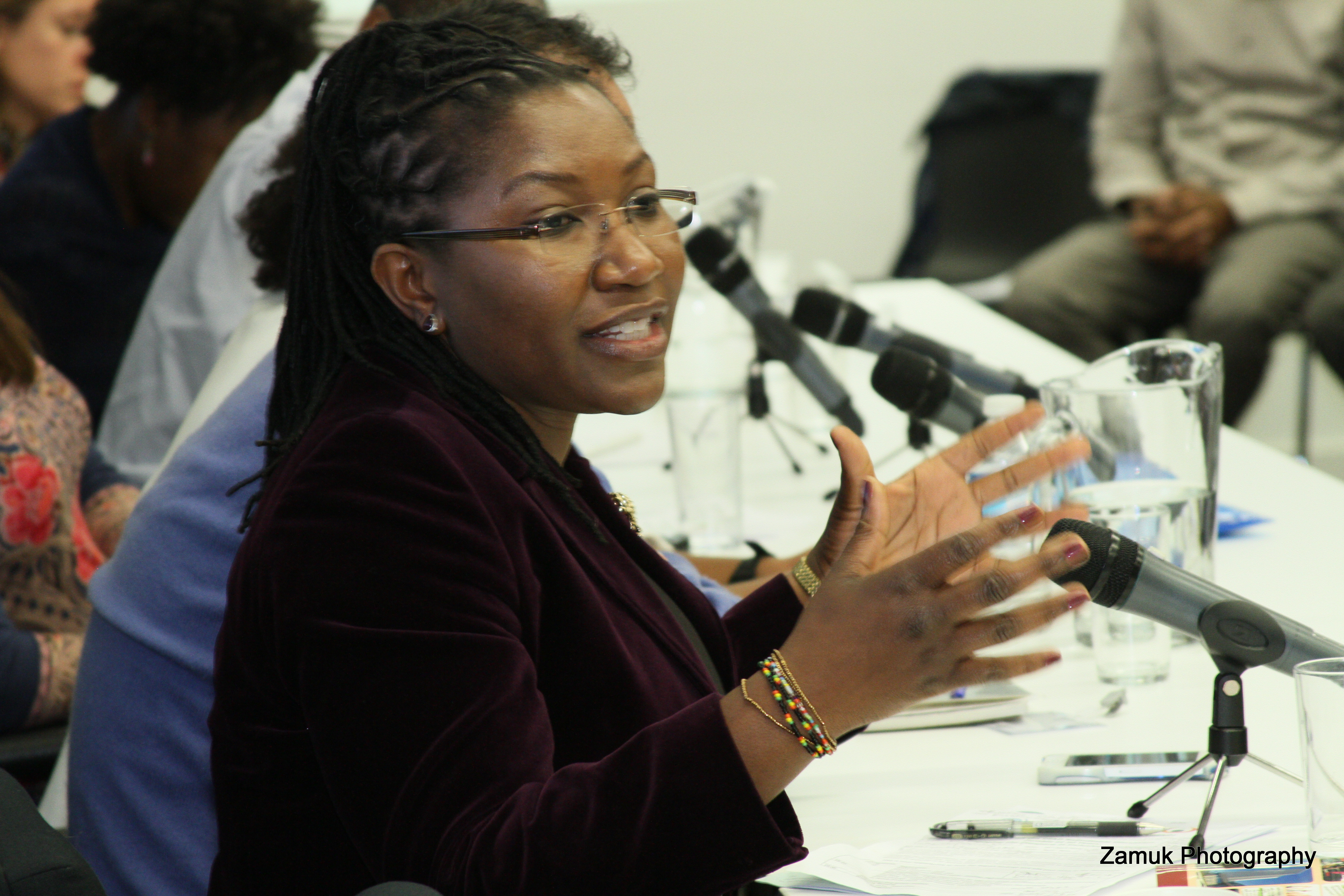Speech
Facilitating Positive Development Impacts of Diaspora Engagement in Health
From: DfAD and Mrs Chibwe Henry
Delivered on: 12th September 2014 (Transcript of the speech, exactly as it was delivered)
Location: Zambia House, 2 Palace Gate, London
History: Published 13th September 2014
Part of: DfAD Health
DfAD CEO and Founder Chibwe Henry’s speech at Harnessing the Diaspora Health Resource after 50 years of Independence: Diaspora Initiative for Zambian Health Event. Event Objective: To explore resources of the current Zambian Health Diaspora in the UK to consider how to contribute to healthcare in Zambia.
Good evening everyone. I am very excited to be part of this event, which is geared to add traction to the Zambian Health Diaspora’s efforts of contributing to national development. So thank you very much to the organisers for having invited me to be part of this occasion.
Diaspora for African Development (DfAD)
As the programme states, I am the founder and CEO of Diaspora for African Development (DfAD), an organisation originally known as Zambian Diaspora Development Network (ZDDN).
DfAD is a Zambian Diaspora-led non-profit organisation based here in the United Kingdom. It is run by a team of 12 volunteers who also either study or work full time in other jobs. DfAD aims to contribute to Africa’s sustainable and social economic development through harnessing the potential of the African Diaspora, with a focus on Zambia and the Southern Africa region.
We operate within the perimeters of our four core programmes; Agriculture, Education, Enterprise and Health. In addition, we use diaspora engagement, as I am doing here this evening, to harness the skills required to contribute to development in the programmes and engage in policy influencing activities in an attempt to create the enabling environment that will allow us to make that diaspora contribution more effectively.
That’s DfAD in a nutshell.
Diaspora and Migrants for Development
According to the United Nations 2013 Data Source, there are 232 million international migrants around the world, making up 3.3 percent of the world’s population. This number constitutes the worlds 5th largest country, behind China, India, the United States and Indonesia.
Over the past 10 years the value of migrant populations, with regards to development efforts in their countries of origin, has been increasing. In a number of countries, such as the Philippines, Ghana, Kenya, Ethiopia and Nigeria; policies, strategies, projects and programmes have been undertaken to enable migrant populations to better contribute to development efforts back home.
Zambian Diaspora for Development
More often than not, the term ‘Diaspora’ brings up negative connotations in Zambia and many other African countries. However, recognised as the Sixth Sector of Africa, the African Diaspora’s significant role in contributing to Africa’s social and economic development is beginning to gather momentum. As a consequence, the Zambian Diaspora themselves are now acknowledging their own development potential and therefore starting to organise more formally in order to contribute effectively on the ground.
Examples of that effort are DfAD and the Zambian Health Diaspora here this evening.
Engaging Civil Society in Improving Public Health
The World Health Organization (WHO) is clear on the significance of engaging Civil Society in improving public health, and I quote:
‘Civil society actors have become more visible, active and influential within health and health systems. Understanding their role, the factors influencing them and the health outcomes they produce is important to anyone wishing to improve public health.’
Subsequently, for Zambia to effectively harness its Health Diaspora, the Zambian Government, international and national organisations need to do much more to understand their role and to enable the facilitation of Positive Development Impacts of Diaspora Engagement in Health. So I commend the Government for supporting this initiative.
As for civil society itself, besides the donation of an ambulance here and paracetamol there, they need to fulfill a key development role in advancing Health in Zambia, which should include skills and knowledge transfers. In addition, they need to establish a coherent connection between the Zambian Health diaspora here in the UK and Zambia, that goes beyond the usual ‘development aid’ paradigm and addresses more structural issues that affect health.
Working in Collaboration and Partnership
DfAD is very happy to contribute to these efforts through our work as members of ZUKHWA (Zambia UK Health Workerforce Alliance). For example, with support from Diaspora Volunteering Alliance (DVA), we are currently developing a diaspora volunteering programme, which will focus on transferring skills and knowledge via webinars. This is an ideal platform for the Zambian Health Diaspora to collaborate on.
Working in collaboration and partnership is key if we are to effectively harness the resources that the Zambian Health Diaspora present.
Most of DfAD’s own success has been due to facilitated partnerships and collaborations. A recent example of this is our February 2014 Lusaka Roundtable event themed, Zambia at 50 years: Engaging the Diaspora in Inclusive Development, which produced DfAD’s Jubilee contribution, the DfAD 2014 Report. The Lusaka Roundtable event was made possible by Clarissa Azkoul, UK Chief of Mission for International Organization for Migration (IOM), who facilitated DfAD’s collaboration with the IOM Zambia office.
Thank you Clarissa (co-panelist at the Zambian Diaspora Health event), it was much appreciated.
We are also currently Supporting Transplant Links on their Zambia Kidney Transplant Project in trying to get it off the ground. Transplant Links is a UK registered charitable organisation, run by volunteer doctors, with the primary objective of working with colleagues and improving medical skills to save lives through ethical kidney transplantation
It is vital that, as Zambian Diaspora engaging in Health here in the UK, we work together by partnering and collaboration on projects that have similar synergies. I speak from DfAD’s initial adverse experience of trying to engage with some of the diaspora health-worker-led groupings in various diaspora communities. The tensions between non-health diaspora engaging in health and health workers can be retrogressive to all our efforts.
Moving forward then, as non-health diaspora engaging in health and health workers, there is a need for an open dialogue between us to address this significant communication gap, which threatens to derail any attempts at progressive dialogue.
We can all contribute to bridging this gap by creating opportunities that enable cohesive Zambian Health Diaspora development contributions, such as this event today, which has been facilitated by ZUKHWA and the Zambian Government. An event like this ensures the prevention of silo working in the Zambian Health Diaspora, which results in multiple fragmented and ineffective diaspora contributions.
Reflecting on Zambia’s 50th Independence Anniversary
Furthermore, Zambia’s 50th Independence Anniversary prevails on us who are here this evening to critically reflect on the asymmetrical relationship that has existed for the past 50 years, between the resources that the Zambian Health Diaspora in the UK signify and their utilisation in advancing healthcare in Zambia.
It also offers us the opportunity to reflect on how we would like to advance beyond this point.
Reaffirming Zambian Health Diaspora’s Commitment
As I stated at the beginning of my presentation, this event today has built up the traction that was needed to get the Zambian Health Diaspora reaffirmed in their commitment to contributing to advancing Health in Zambia. Imagine what they would be able to achieve with this additional support from the Zambian Government, other Zambian Diasporans, international and national organisations. It is insurmountable to say the least.
Prioritising Formulation of a Diaspora Engagement Framework for Zambia
In conclusion, as a Diaspora and development advocate, my final remarks therefore are that, the Zambian Government needs to prioritise the formulation of a Diaspora Engagement Framework for Zambia. This, ultimately, is what will enable the wider Facilitation of Positive Development Impacts of Diaspora Engagement in Health.
The formal inclusion of the Zambian Diaspora as partners in national development has the potential to exponentially increase Zambia’s chances of attaining the post-2015 goals.
Let Zambia effectively harness the potential of its Health diaspora for development.
Many thanks



No Comments to "Facilitating Positive Development Impacts of Diaspora Engagement in Health"